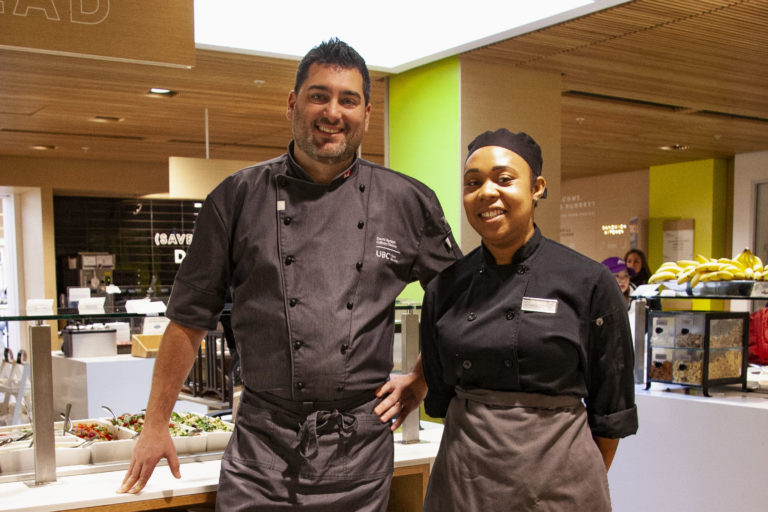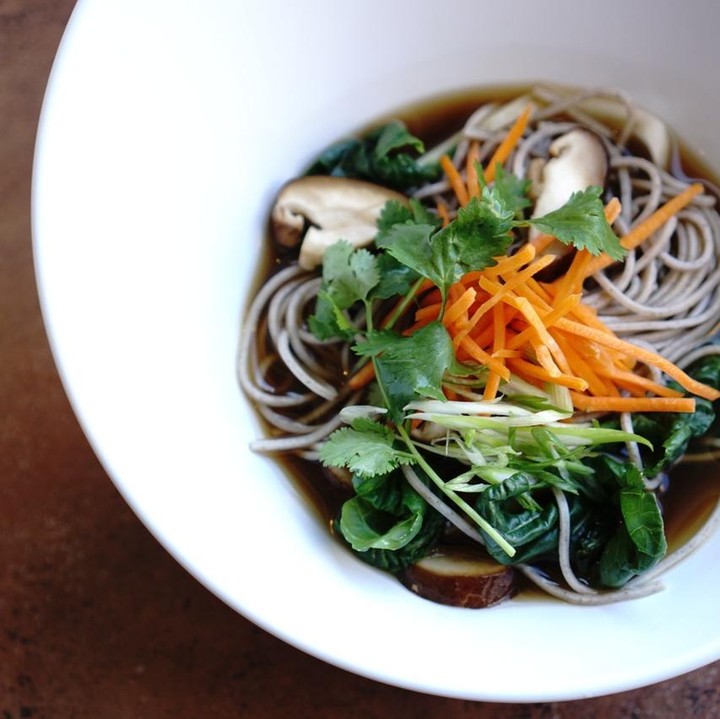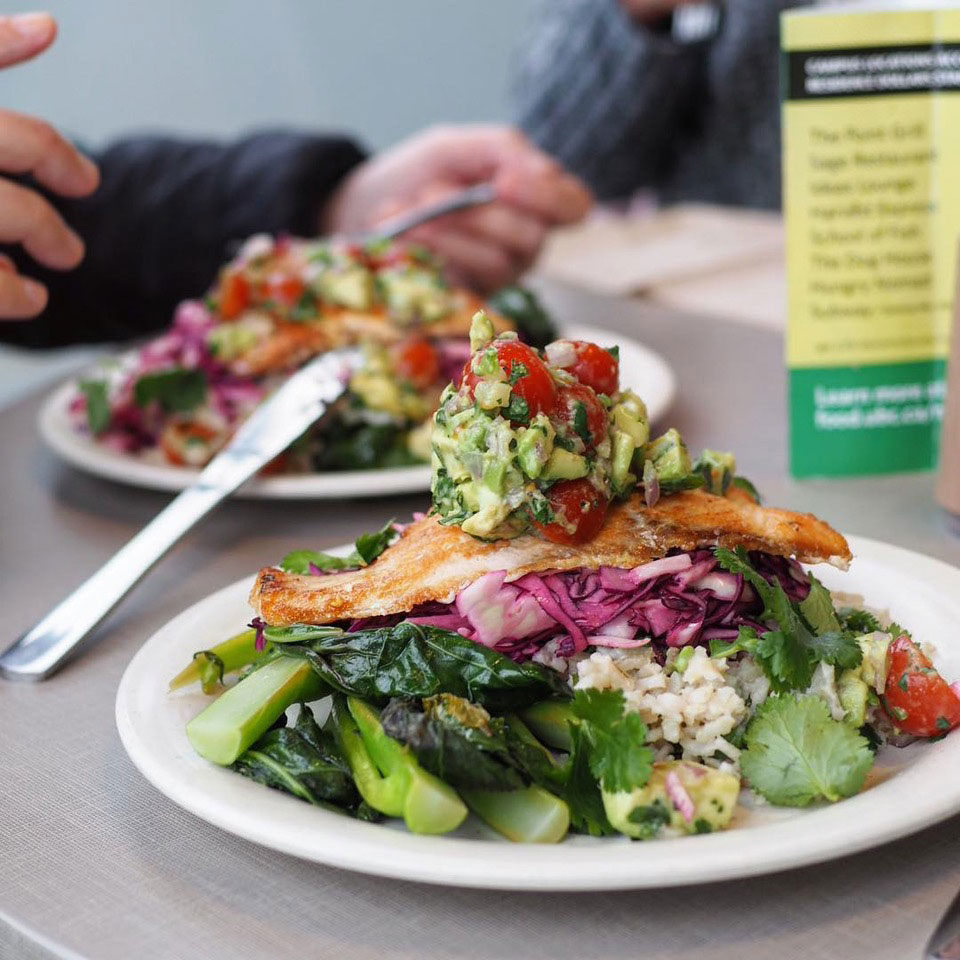On the frontlines of a food revolution at UBC
Having led some of B.C.’s top restaurant kitchens, Chef David Speight could easily be garnering accolades for his culinary skills in any number of establishments in Canada.
Having led some of B.C.’s top restaurant kitchens, Chef David Speight could easily be garnering accolades for his culinary skills in any number of establishments in Canada.
But since 2014, the former executive chef of Monk McQueen’s Seafood & Oyster Bar, Bridges Restaurant and Rogers Arena has helmed UBC Food Services, overseeing a culinary transformation on campus. Under his leadership, campus food has gone from institutional to inspired, with menus boasting locally sourced ingredients prepared by a stable of skilled chefs who are redefining dining at UBC.
“I realized there was a great opportunity to really improve food quality, but also build on a lot of aligned values around sustainability,” he says. Today, over 60 per cent of UBC Food Services’ $10-million purchasing budget goes to locally sourced ingredients, including from the UBC Farm and Vancouver Farmers Markets.

“The opportunity to come to an organization that valued local purchasing and sustainability within kitchens and food systems really appealed to me,” he says. “I think we’re definitely leaders of the industry when it comes to local purchasing.”
Under Speight’s watch, residence dining has undergone a seismic shift, moving away from traditional dining hall fare to more sophisticated offerings—an approach that’s evident at Open Kitchen at Orchard Commons, Feast at Totem and Gather at Vanier.
“One thing I wanted to do immediately when I got here was change our philosophy around traditional menu rotation, which to me screams institutional dining,” Speight explains. “To do that, we had to not only change our products and menus, we also had to work really hard at developing our chefs. Rotational menus don’t allow for cooking from scratch. Now, we’re asking our chefs to take raw ingredients, prep them, make sauces, make and cook entrées, and really compose a whole dish. We’ve had to build up the talent of our culinary team to achieve our goals.”
To that end, Speight has introduced a Red Seal apprenticeship program, which enables young chefs to earn certification while immersed in a full range of culinary experiences at UBC.
“The opportunity to work under potentially 10 different Red Seal chefs under one employer during an apprenticeship here is second to none,” he says.
The program launched in February 2018 with eight apprentices—six of them women, including 32-year-old Raycine Mattison.
Mattison, who has a passion for catering and large-scale food preparation, joined UBC Food Services a couple of months before the apprenticeship program was launched. She says her preconceived notions about working in university dining were quickly dispelled: “When I actually had a chance to sit down and talk about what they were going through and see all the changes they had made, I thought, wow, this is definitely not pop-and-go!”
Mattison, who has a culinary diploma from George Brown College of Applied Arts and Technology in Toronto, is cycling through rotations at the student residence kitchens, catering and at Sage. Currently at Feast, Mattison has especially welcomed the opportunity to delve into international cuisine.
“I’ve learned a lot more about Asian curries, which has been quite interesting,” she says. “Cooking a variety of cultural foods gives students a chance to find things that remind them of home, and at the same time it gives us chefs a chance to make things that we would never normally make. It’s been awesome.”
Mattison hopes to complete her Red Seal training by October, but she has no plans to move on to another employer any time soon. She has her eye on the new kitchen that will open in the South Gage residence currently under construction on University Boulevard. “That just sounds like a golden opportunity to put my skills into practice,” she says.


As for Speight, his next big project will be to guide another culinary transformation—this time at UBC Okanagan, where UBC Food Services will take over dining operations at the Kelowna campus in July, after years with third-party contractor Aramark Canada.
“I’m excited to bring everything we’ve learned about providing sustainable, healthy and fresh ingredients to students at UBC Vancouver and apply those practices to the Okanagan,” he says. “It’s a great opportunity to expand our mission of providing fresh and cost-effective meals to the university community in Kelowna.”
Ultimately, the success of Speight’s vision and the university’s commitment to seeing it through is clear on the plates and in the bowls of seven million customers served annually: fresh, nutritious and delicious food.
“Universities across North America have really been challenged to up their game when it comes to food services,” says Speight. “UBC is right at the forefront.”
UBC Food Services by the numbers
- 40 campus locations
- 34 distinct brands
- 2 full-service and casual catering divisions
- 3 dining halls with seating for 300+
- 2 full-service restaurants
- 8 food trucks and concession stands
- 6,000 events hosted and catered annually
- 60 per cent of annual $10-million food purchases are local
- $50,000 worth of organic vegetables purchased annually from the UBC Farm
- 800+ employees
- 7 million customers every year



